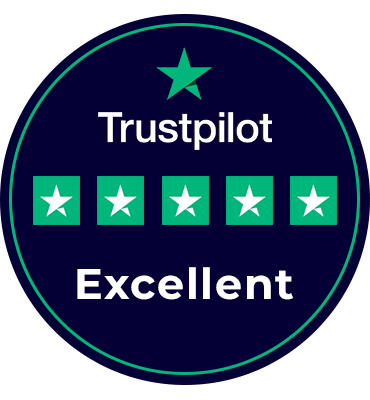Enterprise Software Development Company | Custom Enterprise Software Solutions
Shyam Singh
Last Updated on: 31 July 2025
In a world where a digital presence is a requisite, companies are looking towards enterprise software development in a bid to enhance productivity, polish workflows, and improve their market position. A properly developed software is a necessity in solving the functional and operational bottlenecks your business faces, whether you are a rapidly growing startup or a large corporation.
In this article, we are going to discuss the concept of enterprise software development and its benefits, different categories of enterprise software, the development lifecycle, and the choice of software development companies. We are also going to emphasize the importance of enterprise software customization and examine the main trends that will define the future.
What is Enterprise Software Development?
Enterprise Software Development is the process of creating specific software that addresses the previous methods of working, the workflows, and the data controlling in large enterprises. These systems are usually designed to be easily expandable, safe, and to work with the existing systems to improve the automation of activities and the quality of decisions.
Unlike consumer-focused applications, enterprise applications are comprehensive systems serving multiple departments such as HR, finance, sales, operations, supply chain, and customer service.
Why Custom Software Solutions Are Necessary for Enterprises
Small businesses and startups may find off-the-shelf software useful, but these tools do not bend to the needs of large enterprises. They need solutions that match their workflows and can scale alongside the business. Custom enterprise software development seeks to address this gap.
Here are a few reasons why enterprises opt for custom-built software:
- Business Needs: Businesses operate in different domains and hence incur distinctive business processes. Custom software is tailored to business processes and operations.
- Growth and Adaptation: Unlike pre-built software, custom solutions can evolve and scale alongside business growth.
- Integration: Enterprises operate multiple tools simultaneously, and custom solutions ensure seamless integration without disruption.
- Data Security: Sensitive enterprise information necessitates strict control over the software’s security infrastructure, a protocol easier to enforce with tailored solutions.
- Long-term ROI: Although custom software solutions require a higher initial investment, such solutions often prove to be more cost-effective in the long run.
Types of Enterprise Software
Typically, an enterprise software development company provides services in several enterprise-grade applications, including:
- Enterprise Resource Planning (ERP) - An ERP Software integrates and streamlines core business processes including finance, HR, inventory, etc. within a centralized system and improves collaboration.
- Customer Relationship Management (CRM) - CRM systems facilitate the administration of client engagements, sales funnels, and support services, which in turn boosts client satisfaction and retention.
- Human Resource Management Systems (HRMS) - These systems take care of the activities that include but are not limited to: advertising job vacancies, onboarding new hires, processing payroll, tracking employee activities, monitoring productivity, and overseeing compliance.
- Supply Chain Management (SCM) - SCM software integrates procurement, logistics, inventory, and order management functions.
- Business Intelligence (BI) - Business Intelligence tools help in data analysis and provide actionable insights that support the decision-making process.
- Content Management Systems (CMS) - CMS systems assist organizations in the creation, publication, and management of content in multiple channels.
- Enterprise Asset Management (EAM) - EAM software helps organizations optimize the maintenance and use of their physical assets by managing the assets lifecycle.
Key Features of Enterprise Applications
- High Scalability and Performance
- User Role Management and Access Control
- Data Analytics and Reporting
- Process Automation
- Cloud and Mobile Access
- Robust Security Architecture
- Interoperability with Other Systems
- Customizable Dashboards and Workflows
Benefits of Enterprise Software Development Services
- Enhanced Operational Efficiency: Business processes that are by nature repetitive are made more efficient, as automated workflows eliminate the need for manual activities and redundant tasks.
- Improved Decision Making: Analytics, reporting tools provide real-time data for tracking organizational metrics, and even dynamic dashboards that update in real-time assist business leaders in making on-time data-driven organizational decisions.
- Enhanced Customer Service: With integrated CRM systems, businesses are able to deliver timely and personalized client interactions.
- Reduced Costs: Although the upfront investment might be significant, automation and optimized workflows greatly facilitate and lower operational expenses over time.
- Compliance with Regulations: Software can be tailored to address specific compliance requirements and regulations relevant to the industry.
- Stronger Market Position: Unlike rivals who utilize off-the-shelf solutions, tailored business software gives easier and more advantageous alignment with the company’s objectives enhancing market competition position.
Steps in Creating Enterprise Software
- Collaboratively Defined Needs: Analyze business requirements, user personas, and objectives using workshops, interviews, and document analysis.
- System Design and Architecture: Outline a system’s high-level architecture with scalability, security, and modularity in mind.
- Selection of Technology Stack: Evaluating a system’s performance, maintainability, and integration demands to formulate a relevant set of technologies.
- Development: Frontend and backend integration, microservices, database design and integration, and system services.
- QA and Testing: Completing necessary user acceptance testing, security audits, and thorough system functional and performance testing.
- System Deployment: Application deployment to cloud or on-premise servers using DevOps and CI/CD tools.
- Ongoing Maintenance and Support: Active performance, ongoing security, bug, and patch monitoring and process patching update services.
Choosing the Correct Enterprise Software Development Company
- Industry Experience: Select a company that has a well-known record in enterprise software development services in multiple industries.
- Technical Expertise: Look into their proficiency with cloud technologies, databases, APIs, frameworks and other relevant technologies.
- Custom Development Capabilities: Confirm that they specialize in custom software solutions as opposed to only offering preset software packages.
- Agile Development Methodology: Agile provides room for incremental releases, continuous input, and flexibility.
- Portfolio and Case Studies: Review their projects, client reviews, and testimonials for authentic case resolution.
- Security Compliance: Confirm that they observe basic security protocols and are familiar with compliance requirements for your sector.
Custom Enterprise Software Development and Tailored Solutions
| Feature | Custom Development | Off-the-Shelf Software |
|---|---|---|
| Personalization | Custom made to your specifications fully | “One size fits all” features |
| Cost | Higher initial investment but lower over time | Lower initial investment but may need costly add-ons later |
| Scalability | Developed to scale progressively with the business growth | Limited scope for business growth |
| Integration | Synchronized with your systems | Needs additional tools to function properly |
| Time to launch | Shorter wait time to implement software | Immediate or quick access |
| Competitive Edge | Provides a competitive advantage | Loss of competitive advantage |
Top Trends in Enterprise Software Development
- Cloud Native Applications
- AI and Machine Learning
- Low-Code or No Code Development
- Microservices Architecture
- Blockchain for Data Security
- Integration of the Internet of Things
- Improvements to Cyber Security
Conclusion
In the current era, the need to invest in enterprise software development has become a strategic necessity. The appropriate software can optimize your business by improving internal processes or customer interaction.
Selecting a reliable enterprise software development company makes certain that your software is compliant with your business objectives, as well as secured and scalable for future growth. If you are contemplating custom enterprise software development, ensure that your partner appreciates your industry, technology ecosystem, and your long-term aspirations.
Searching for Enterprise Software Development Services?
With Fulminous Software, you have a partner who is specialized in custom enterprise software development aligned with your business objectives. We build enterprise grade software solutions such as ERP, CRM, and AI-empowered analytics tools with security, scalability and intelligence in mind.

 Verified
Expert in Software & Web App Engineering
Verified
Expert in Software & Web App Engineering
Partner with Top-Notch Web Application Development Company!
Discuss your Custom Application Requirements on info@fulminoussoftware.com or call us on +1-903 488 7170.
15 Days Risk-Free TrialRecommended Articles


